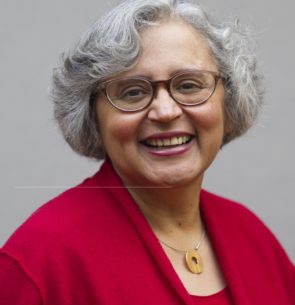
Cecilia A. Conrad
Managing Director, Awards and Fellows Program, John D. and Catherine T. MacArthur Foundation and CEO, Lever for Change
Cecilia A. Conrad, Ph.D. is a Managing Director, Awards and Fellows program at the John D. and Catherine T. MacArthur Foundation and CEO of Lever for Change, a new initiative to unlock new philanthropic capital to tackle important social challenges.
Before joining the foundation in January 2013, Conrad had a distinguished career as both a professor and an administrator at Pomona College, Claremont, CA. She joined the economics faculty at Pomona College in 1995. She served as Associate Dean of the College (2004-2007), as Vice President for Academic Affairs and Dean of the College (2009-2012), and as Acting President (Fall 2012). From 2007-2009, she was interim Vice President and Dean of the Faculty at Scripps College.
Conrad’s academic research focuses on the effects of race and gender on economic status and her work has appeared in both academic journals and nonacademic publications including The American Prospect and Black Enterprise. Her co-edited text, African Americans in the US Economy, was named a CHOICE Outstanding Academic Title in 2005. Conrad has also served on the faculties of Barnard College and Duke University, was an economist at the Federal Trade Commission and was a visiting scholar at The Joint Center for Political and Economic Studies.
Conrad was recognized as California’s Carnegie Professor of the Year in 2002, received the National Urban League’s Women of Power Award in 2008 and the National Economic Association’s Samuel Z. Westerfield award in 2018. She has honorary doctorates from Claremont Graduate University and the University of Massachusetts Dartmouth.
Dr. Conrad is a member of the board of trustees of Bryn Mawr College, The Poetry Foundation, the National Academy of Social Insurance and the Sylvia Bozeman and Rhonda Hughes EDGE Foundation. She received her B.A. degree from Wellesley College and her Ph.D. in economics from Stanford University.
Related Sessions
How Foundations Can Grow Their Impact By Accelerating the Giving of Ultra-High Net Worth Donors
Alexa Cortes Culwell
Cecilia A. Conrad
Julita Eleveld
Carol S. Larson
With $800 million committed to philanthropy by signers of the Giving Pledge and an estimated $85 billion in donor-advised funds, philanthropic assets are being accumulated at an unprecedented rate. At the same time, many new donors with tremendous resources are struggling to scale their impact. Established foundations in the U.S. have a role to play — if they choose to embrace it — at the intersection of this opportunity and the renewed urgency around critical issues of our day. Given their deep capacity and penchant for strategic approaches, these foundations are ideally positioned to accelerate the giving of these donors […]